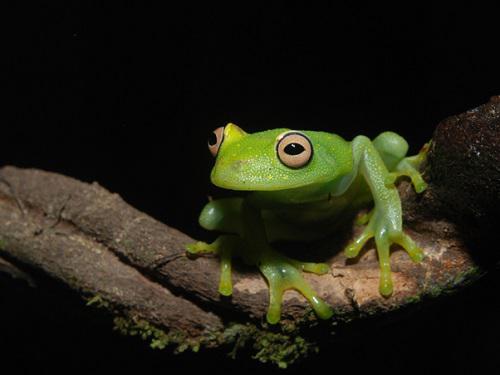Arturo Muñoz
Other projects
The conservation of Bolivian threatened amphibians, providing diversity and ecological information through surveys and education workshops in poorly known areas.

Hyla granosa.
Bolivia is a mega-diverse country holding a large percentage of the world’s biodiversity. This high richness contrasts with the poor knowledge of its biodiversity, lack of economic resources and conservation actions. Bolivia holds more than 250 species of amphibians >50 endemic and c. 40 threatened. Additionally, many species are ‘data deficient’ regarding range, ecology and populations sizes. Limited recent work has highlighted areas, such as the Andean slopes, as a priority for amphibian conservation and also high Andean threatened species that needs urgent conservation actions before they disappear.
Gap analysis has shown that there are a number of areas with tremendous richness and endemism and whose habitats are severely threatened but which are very poorly known regarding amphibians. Also, more worryingly there are a number of sites (even within protected areas) which require immediate conservation action due to habitat destruction and recently because the presence of the Chytridium fungus that is killing entire populations across the world. Therefore, the work outlined in this proposal agrees with the current priorities of the Bolivian conservation and scientific community for amphibians; namely increased knowledge for certain areas, sites and species in tandem with community activities to reduce habitat loss at high priority sites.
The amphibian decline has been acknowledged as a global conservation priority. Several countries have implemented amphibian conservation schemes, but Bolivia has no such strategy. This project will work with:
1. Amphibian surveys: At 9 sites (some of them will be monitored) will provide information on range, ecological requirements and abundance for a number of data deficient, restricted range and threatened species. This data is absolutely crucial to allow the Bolivian conservation community to assess the current threatened status, develop and initiate realistic conservation measures like future captive breeding programs.
2. Training: Park-guards, members of local communities and students in amphibian survey techniques. This will increase the data collected during surveys and provide interested and receptive individuals from communities and protected areas that will support the development of future monitoring, conservation education initiatives.
3. Conservation education: We will develop conservation education workshops aimed at communities where severe habitat loss/degradation is occurring and which contain important populations of amphibians of conservation concern. We also will carry out in the museum activities where the importance of amphibians will be shown.
4. We will start a pilot amphibian captive breeding component, and in a future protect them from extinction, and also for education purposes.